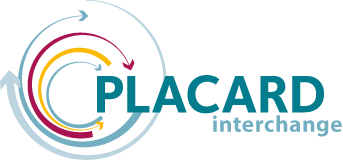Following previous events in London and Rome, the 3rd Annual Seminar of the Disaster Risk Management Knowledge Centre (DRMKC) of the European Commission took place in Sofia (Bulgaria) on April 26–27 2018. Organised in collaboration with the Bulgarian Academy of Science, the event provided an opportunity to review progress made in the main areas of activity of the DRMKC:
- reinforcing partnerships and networks to improve science based analysis
- improving the use and uptake of research and operational knowledge
- and advancing innovation for DRM.
The seminar brought together around 100 inter-disciplinary experts, including scientists, practitioners and policy makers working on disaster management, early detection, forecasting, warning and risk assessment of natural and man-made disasters. A key topic of discussion was how to strengthen the science-policy interface, including supporting the mainstreaming of DRM in education. A number of good practices currently underway and potentially replicable across Europe were shared. Among them, the experience of the Portuguese project ClimAdaPT.local – presented by the municipality of Cascais – showed the potential of employing non-traditional communication media such as comics to create awareness across the youngest section of society and engage them in implementing local adaptation measures.
Attention was also drawn to how evidence, such as the collection of loss and damage data, can be used for DRM policy making and, at a higher level, for tracking progress towards the United Nations Sustainable Development Goals (SDGs), Framework Convention on Climate Change (UNFCCC) and Sendai Framework for Disaster Risk Reduction (SFDRR). For instance, the World Mereological Organization (WMO) is reported to be currently working with stakeholders on an approach for cataloguing and managing information on extreme events. As an example at the EU level, Cima Foundation showed how the FloodCat platform – a national catalogue of historical floods developed by the Italian Department of Civil Protection – is being adopted in Greece for reporting of the second cycle of the EU Flood Directive.
During the two-day meeting, discussion also touch upon the benefits of multi-sectoral and multi-stakeholder partnerships for enhancing resilience to disasters and climate change, and how such collaborative actions could be facilitated. On innovation, participants explored how to support the development of new mechanisms and technologies together with practitioners and first responders.
Finally, the seminar hosted the launch of one of the six European Innovation Council (EIC) Horizon Prizes devoted to innovative solutions to societal challenges. The €5 million prize Early warning for Epidemics will be awarded to a scalable and cost-effective prototype capable of integrating Earth observation and other types of geo-located data to forecast and monitor outbreaks of vector-borne diseases such as malaria, zika and dengue. The contest will be open until 1 September 2020 with the prize awarded in the first quarter of 2021.

